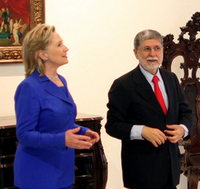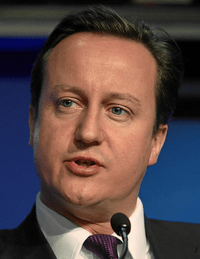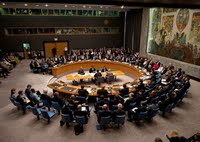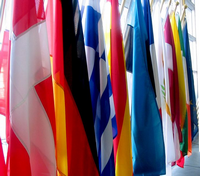
One of the most troubling features of the environment in Washington these days is the inability to make tough strategic choices. This is particularly apparent when foreign policy objectives conflict with domestic political priorities: Because the two policy areas are usually compartmentalized, our diplomats don’t have much leverage to negotiate and bargain with other governments. Secretary of State Hillary Clinton’s recent trip to Brazil, where she unsuccessfully sought to enlist support on the question of Iran sanctions, is a case in point. There are a number of issues currently causing friction in the bilateral U.S.-Brazil relationship. One is our continued […]





